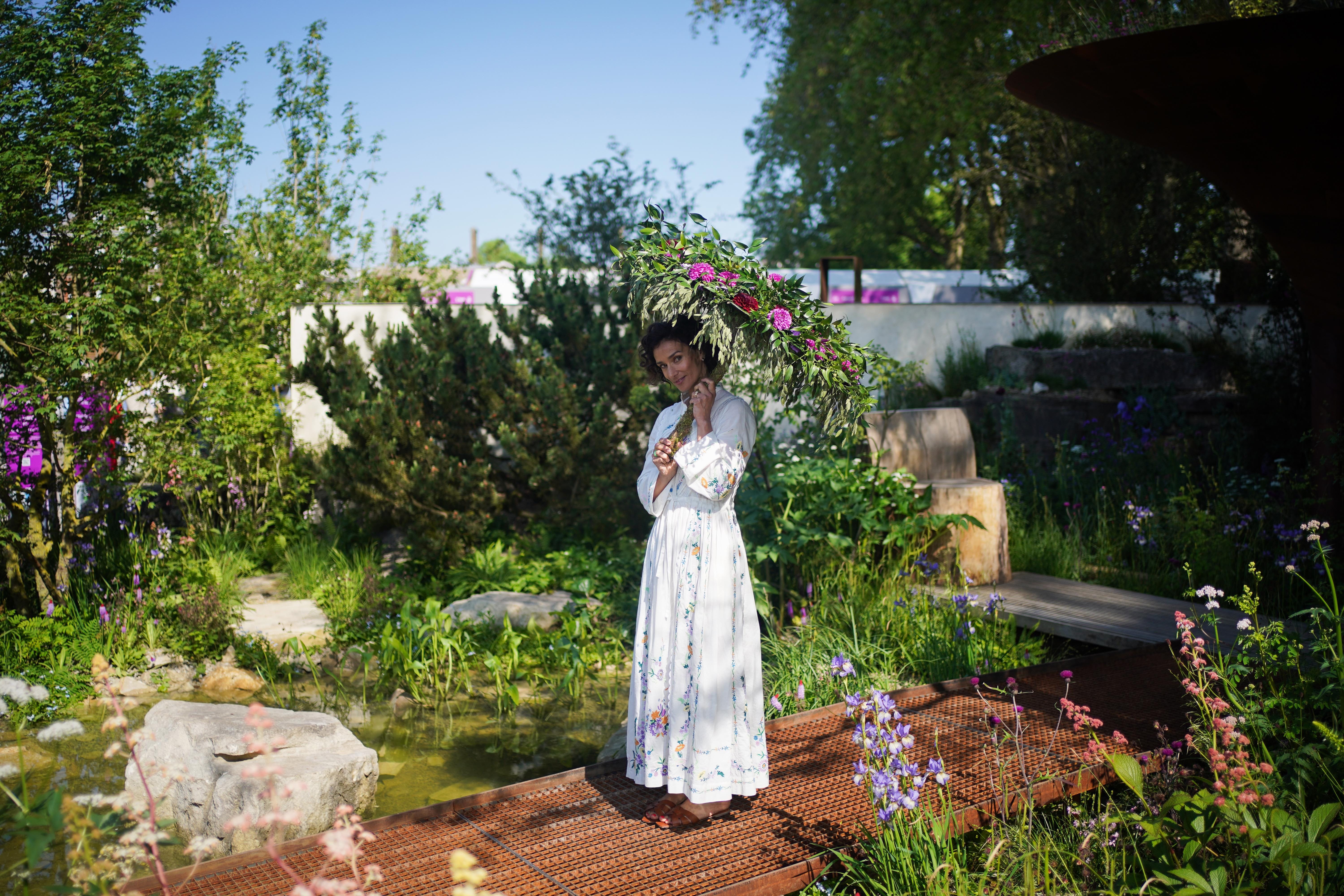Actress Indira Varma: ‘We think climate change is happening elsewhere, but actually, it’s happening in our very own backyard’
British actress Indira Varma speaks to Yolanthe Fawehinmi about her gardening joys, climate change and the advice she would give to woman and girls.

Indira Varma didn’t have a garden when she was an only child, raised in Bath, Somerset, by her Indian father and Swiss mother, who is of part Genoese Italian descent. But she watched them still manage to grow their own fruit and vegetables.
“When my father came to England, he wanted to be as self-sufficient as he possibly could, so we grew our own fruit and vegetables. And it’s not about being exotic either. He would experiment because he had no idea about how British soil worked. It was about trial and error, and I feel to a certain extent, that’s what I’m trying to do,” said the 50-year-old British actress, who is known for starring in the HBO series Game of Thrones as the vengeful Ellaria Sand, and Zoe Luther in the BBC crime thriller series Luther.
“I don’t have enough space for a vegetable garden or time for an allotment, sadly, but I’ve got my tomatoes. I’ll try to do beans here and there. I definitely do herbs. And I realised that because I’m not there all the time – and I think this is better for the environment – I try to grow native, the stuff that grows here naturally and suits the soil that we have. Also, whatever is food for the natural habitats of birds, insects and wildlife. We need to sustain that.”
Varma admits that her garden is “a bit wild at the moment” and has quite a few different things in it.
“There are tonnes of roses, which are in full bloom. I stupidly bought two of the same climbing rose variety, but they are amazing, hot pink and scented. I’m obsessed with scented things. I also have a lot of alliums, iris, poppies, tobacco plants and foxgloves,” she says.
But her love for gardening goes beyond just growing an amazing array of vegetables, plants and flowers. Varma also believes nature makes us all hit the reset button.
“You [need to] follow the seasons and that’s so grounding. It reminds you of where you’re at and can be very relaxing. I think there’s something about caring for things that grow, that sort of don’t need you. But if you care for it, it will give you more than you bargained for. That I think is an amazing thing, and of course, it’s beautiful.”
In celebration of The WaterAid Garden at RHS Chelsea Flower Show in collaboration with the grant-making charity Project Giving Back – designed by landscape designer Tom Massey and architect Je Ahn – which the Olivier Award-winning actor currently starring in the new series of Doctor Who helped to unveil, Varma says she also loves the whole idea of greywater and the sustainable power of trees.
At the centre of The WaterAid Garden – which was also awarded gold by RHS Chelsea – is an 11ft tall rainwater-harvesting pavilion inspired by the work the charity does in communities around the world to help provide a reliable source of clean water, whatever the weather.
According to the charity, one in ten people around the world does not have access to clean water close to home, and due to the climate crisis, it’s only getting worse, with more frequent and extreme floods polluting water sources and droughts drying up springs.
“Water is our most important resource, which is incredible. I have a little garden in [North] London, we’re all experiencing extreme weather, not just worldwide. We think of it as happening elsewhere, in countries that have severe flooding and severe drought. But actually, it’s happening in our very own backyard,” says Varma.
“And I just love that whole idea of grey water, or reusing water, purifying water. I love that there is an older tree that’s growing up through the middle of the garden and it absorbs nitrogen and also [other] heavy metals.
“It’s really important that we highlight the fact that there is a climate crisis going on and that we become more responsible for the way we live, day to day. Harvesting rainwater is an amazing thing. WaterAid does it on a grand scale around the world, highlighting the impact this has on women and girls, but we should be doing it at home.”
Varma is also very passionate about empowering women and girls and loves to tell her teenage daughter Evelyn and her friends to say yes to everything, have courage, be brave, take calculated risks and believe in themselves.
“I want my daughter to have the courage to try everything and really be brave enough to follow her heart because it takes courage, doesn’t it? Sometimes it means going against what other people think,” says Varma.
“I think women work very well in communities, in helping and nurturing each other. We look after each other and make things happen because we’re often thinking about and looking after the next generation and the older generation. We’re less egocentric, potentially. I guess it’s fair to say that men are not like that, but I think women look after women.
But if there’s anything her daughter has taught her, it’s to back off. “Well, she often tells me ‘No’ and that she’s going to do things her own way. I’ve learnt that it’s okay to give people the space to be who they are and do their own thing.”
Bookmark popover
Removed from bookmarks